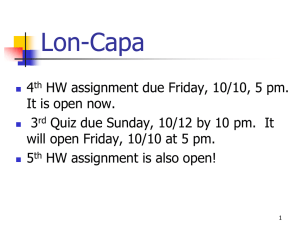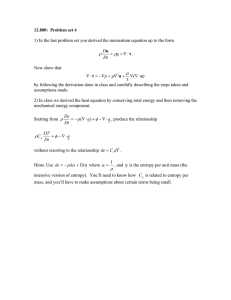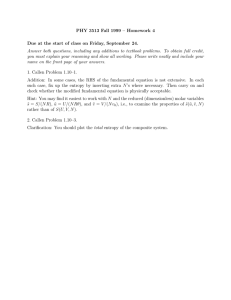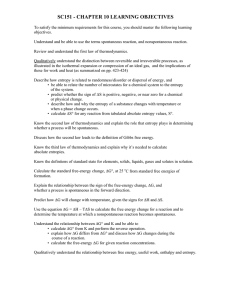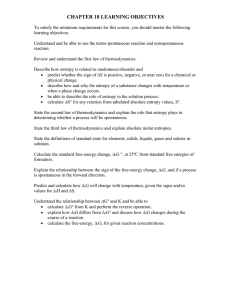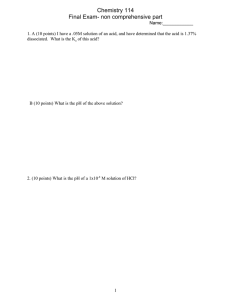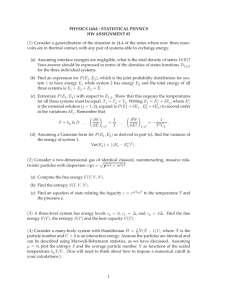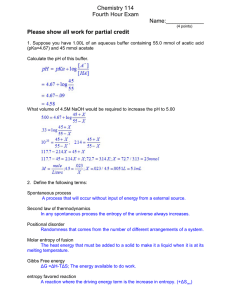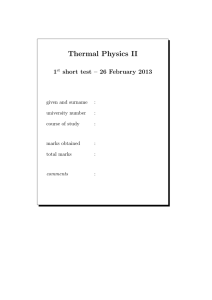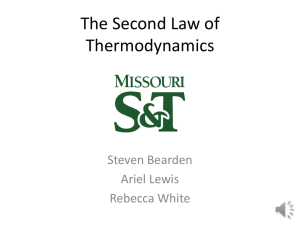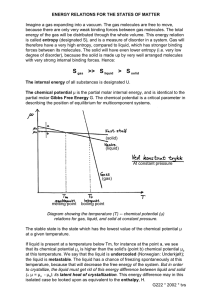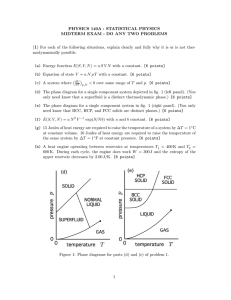Lecture 15
advertisement
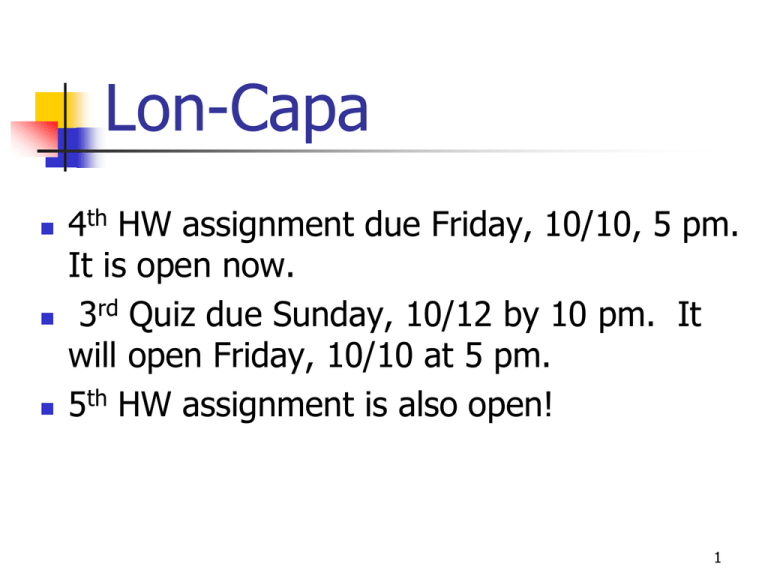
Lon-Capa 4th HW assignment due Friday, 10/10, 5 pm. It is open now. 3rd Quiz due Sunday, 10/12 by 10 pm. It will open Friday, 10/10 at 5 pm. 5th HW assignment is also open! 1 Chapter 9: Problem #99 When water is supercooled, it freezes at a temperature below 0.0°C. If 10.9 kJ of energy as heat is released when 2.00 mol of supercooled water at –15.0°C freezes, calculate the molar enthalpy of fusion for ice at 0.0°C and 1 atm. Assume the molar heat capacities are temperature independent. [for H2O(l): 75.3J/Kmol, for H2O(s): 37.5J/Kmol] 2 We know it should. But why? Determine q, w ΔE, ΔH for this process. Which helps us to explain why this happens? 3 Questions To Consider How can we predict which reactions are spontaneous (and what do we mean by spontaneous)? How can we provide support (mathematical and qualitative) for observations? Ice cream melts Coffee cools Why do systems reach equilibrium? That is, why doesn’t the ball go all the way down the hill? 4 How to Think About Entropy Entropy is related to heat/temperature. ΔS = qrev/T Entropy as “disorder”. S = k●logW 5 Points To Consider We want to see why entropy is related to the logarithm of the number of configurations or microstates. We want to show that thermal equilibrium is preferred when two bodies of different temperatures are put in contact with one another. We want to see how probability plays into all of this. What does “reversible” mean when we say the change is entropy equals qrev/T? 6
